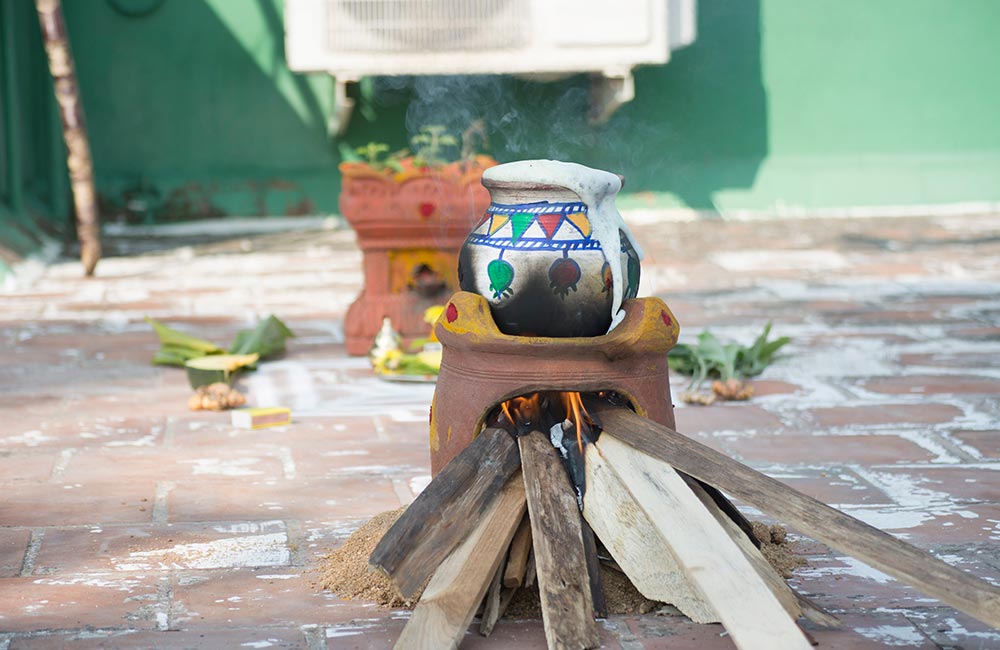Mythology Behind Pongal Festival 2022
India is a country where we celebrate multiple festivals in a year of all religions. Pongal, or Thai Pongal, is the main festival in the state of Tamil Nadu. Native Tamilians celebrate the Pongal festival with fervour with their families and relatives. Pongal is essentially a harvest festival and a gesture of gratitude towards the natural elements of the Earth that make their crop harvest possible. Farmers pray to a higher force for a good harvest. People celebrate the harvest festival according to their own customs and traditions and hence, people call it by several different names. Like all major Indian festivals of India, Pongal, too, has a rich history behind its origin. In this blog, we shall explore the mythology behind Pongal festival 2022.
Must Watch: The evolution of Tamil Nadu
The harvest festival is called Makar Sakranti in Northern India, Uttarayan in Gujarat, Gudi Padwa in Maharashtra, Khichdi in U.P and Onam in Kerala and finally, Pongal in Tamil Nadu. Tamilians living outside India i.e. Canada, Malaysia, Mauritius, Singapore, South Africa, the United States, and the United Kingdom also celebrate Pongal with much fervour and enthusiasm.
What is Pongal?

People celebrate Pongal on the 14th of January every year for three to four days just after Lohri. The purpose behind Pongal is to give thanks to the Sun God that leads the way to a good harvest and prosperity in life. This southern harvest festival got its name from a special sweet rice-based dish ‘pongal’. Devotees prepare pongal dish on this day to offer to their God of worship.
When to celebrate Pongal ?

Pongal 2022 will be celebrated from 13th to 16th January. The three days of the Pongal festival are Bhogi Pongal, Surya Pongal, and Maattu Pongal. Some Tamils also celebrate the fourth day of Pongal i.e. Kanum Pongal.
Recommended Read: 6 Sarees To Flaunt This Pongal Festival
History of Pongal
Sanskrit Puranas, as far back as 200BC to 300AD (also known as the ‘Sangam age’), mention the Pongal festival frequently. It states that Pongal was celebrated as Thai Nirdal in the Sangam age. The girls used to do fasting and believed that it would bring a healthy crop, richness, and prosperity to the country for the coming year.
Mythology Behind the Pongal Festival 2022
There is a story of the well-known bull of Lord Shiva. Once the god asked his bull to go on earth ask the people on earth to eat only once a month have a bath every day. But by accident, the bull announced that everyone should have a bath once a day and eat every day. This made Lord shiva to be angry and he ordered the bull to help people produce more food so that they can have enough food to consume every day.
Another story is about Lord Krishna and Lord Indra. Lord Krishna decided to teach a lesson to Lord Indra, who became egoistic after becoming the king of all deities. Lord Krishna annoyed Lord Indra by asking cow herders to stop worshipping the latter. Later, when Indra found out about this small village and how its populace are refusing to worship him, Indra, out of anger, flooded the village with thunderstorms. Lord Krishna then saved the people of the village by lifting the Govardhan mountain. And finally, Lord Indra apologized to Lord Krishna.
This 2022, celebrate Pongal with style & Julahaa Sarees!
If you love traditional southern silk sarees, then contact us at www.julahaa.com We manufacture and supply traditional close-to-silk sarees of Tamil Nadu, Bengal, Bihar, Uttar Pradesh, Maharashtra, Gujarat, Telangana, Delhi.
Our expert craftsmen design, weave & package the sarees with state-of-the-art machinery. Also, it is our same dedication towards the highest quality that has made us India’s fastest growing saree brand 2021.
To keep up with our latest catalogue releases & regular updates, follow us on:
Julahaa Sarees
Tana Bana Sarees:

